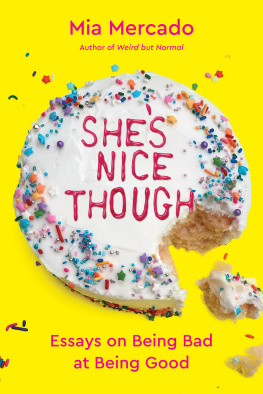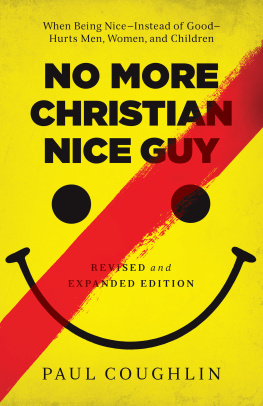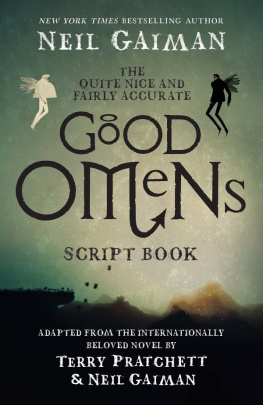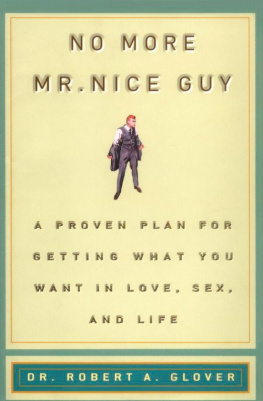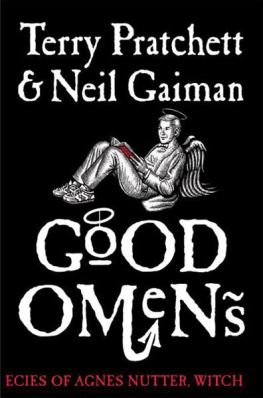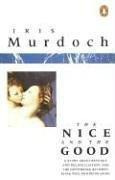Ajris Merdok - The Nice and the Good
Here you can read online Ajris Merdok - The Nice and the Good full text of the book (entire story) in english for free. Download pdf and epub, get meaning, cover and reviews about this ebook. year: 1968, genre: Prose. Description of the work, (preface) as well as reviews are available. Best literature library LitArk.com created for fans of good reading and offers a wide selection of genres:
Romance novel
Science fiction
Adventure
Detective
Science
History
Home and family
Prose
Art
Politics
Computer
Non-fiction
Religion
Business
Children
Humor
Choose a favorite category and find really read worthwhile books. Enjoy immersion in the world of imagination, feel the emotions of the characters or learn something new for yourself, make an fascinating discovery.

- Book:The Nice and the Good
- Author:
- Genre:
- Year:1968
- Rating:3 / 5
- Favourites:Add to favourites
- Your mark:
- 60
- 1
- 2
- 3
- 4
- 5
The Nice and the Good: summary, description and annotation
We offer to read an annotation, description, summary or preface (depends on what the author of the book "The Nice and the Good" wrote himself). If you haven't found the necessary information about the book — write in the comments, we will try to find it.
The Nice and the Good — read online for free the complete book (whole text) full work
Below is the text of the book, divided by pages. System saving the place of the last page read, allows you to conveniently read the book "The Nice and the Good" online for free, without having to search again every time where you left off. Put a bookmark, and you can go to the page where you finished reading at any time.
Font size:
Interval:
Bookmark:
First published in 1968
To Rachel and David Cecil
A head of department, working quietly in his room in Whitehall on a summer afternoon, is not accustomed to being disturbed by the nearby and indubitable sound of a revolver shot.
At one moment a lazy fat man, a perfect sphere his loving wife called him, his name Octavian Gray, was slowly writing a witty sentence in a neat tiny hand upon creamy official paper while he inhaled from his breath the pleasant sleepy smell of an excellent lunch-time burgundy. Then came the shot.
Octavian sat up, stood up. The shot had been somewhere not far away from him in the building. There was no mistaking that sound. Octavian knew the sound well though it was many years since, as a soldier, he had last heard it. His body knew it as he stood there rigid with memory and with the sense, now so unfamiliar to him, of confronting the demands of the awful, of the utterly new.
Octavian went to the door. The hot stuffy corridor, amid the rushing murmur of London, was quite still. He wished to call out 'What is it? What has happened?' but found he could not.
He turned back into the room with an instinctive movement in the direction of his telephone, his natural lifeline and connexion with the world. Just then he heard running steps.
'Sir, Sir, something terrible has occurred!'
The office messenger, McGrath, a pale-blue-eyed ginger= haired man with a white face and a pink mouth, stood shuddering in the doorway.
'Get out.' Richard Biranne, one of Octavian's Under Secretaries, pushed past McGrath, propelled McGrath out of the door, closed the door.
'What on earth is it?' said Octavian.
Biranne leaned back against the door. He breathed deeply a little to see his face. They might find my fingerprints on it!'
'Thanks, but I'd better stay myself. Poor devil, I wonder why he did it.'
'I don't know.'
'He was a pretty odd man. All that conjuring with spirits.'
'I don't know,' said Biranne.
'Or perhaps Of course, there was that awful business with his wife. Someone told me he hadn't been the same since she died. I thought myself he was getting very depressed. You remember, that terrible accident last year '
'Yes,' said Biranne. He laughed his high-pitched little laugh, like an animal's yelp. 'Isn't it just like Radeechy's damn bad taste to go and shoot himself in the office!'
'Kate, darling.' Octavian was on the telephone to his wife in Dorset.
'Darling, hello. Are you all right?'
'I'm fine,' said Octavian, 'but something's happened in the office and I won't be able to get down till tomorrow morning.'
'Oh dear! Then you won't be here for Barbie's first evening home!' Barbara was their daughter and only child, aged four teen.
'I know, it's maddening and I'm very sorry, but I've just got to stay. We've got the police here and there's a terrible to-do.'
'The police? What's happened? Nothing awful?'
'Well, yes and no,' said Octavian. 'Someone's committed suicide.'
'God!
Anyone we know?'
'No, no, it's all right. No one we know.'
'Well, thank heavens for that. I'm so sorry, you poor dear.
I do wish you could be here for Barbie, she'll be so dis: appointed.'
'I know. But I'll be along tomorrow. Is everything OK at your end? How is my harem?'
'Your harem is dying to see you!'
'That's good! Bless you, sweetheart, and I'll ring again tonight.
'Octavian, you are bringing Ducane with you, aren't you?' anve mm Gown.
'Splendid. Willy was wanting him.'
Octavian smiled. 'I think you were wanting him, weren't you, my sweetheart? V 'Well, of course I was wanting him! He's a very necessary man.'
'You shall have him, my dear, you shall have him. You shall have whatever you want.'
'Good-eel'
Two
'You must put all those stones out in the garden,' said Mary Clothier.
'Why?' said Edward.
'Because they're garden stones.'
'Why?' said Henrietta.
The twins, Edward and Henrietta Biranne, were nine years old. They were lanky blonde children with identical mops of fine wiry hair and formidably similar faces.
'They aren't fossils. There's nothing special about them.'
'There's something special about every stone,' said Edward.
'That is perfectly true in a metaphysical sense,' said Theodore Gray; who had just entered the kitchen in his old red and brown check dressing-gown.
'I am not keeping the house tidy in a metaphysical sense,' said Mary.
'Where's Pierce?' said Theodore to the twins. Pierce was Mary Clothier's son who was fifteen.
'He's up in Barbie's room. He's decorating it with shells. He must have brought in a ton.'
'Oh God!' said Mary. The sea-shore invaded the house. The children's rooms were gritty with sand and stones and crushed sea-shells and dried up marine entities of animal and vegetable origin.
'If Pierce can bring in shells we can bring in stones,' reasoned Henrietta.
'No one said Pierce could bring in shells,' said Mary.
'But you aren't going to stop him, are you?' said Edward. 'If I'd answered back like that at your age I'd have been well slapped,' said Casie the housekeeper. She was Mary Casie, but since she had the same first name as Mary Clothier she was called 'Casie', a dark pregnant title like the name of an animal. 'True, but irrelevant, Edward might reply,' said Theodore.
'If it's not too much to ask, may I have my tea? I'm not feeling at all well.'
'Poor old Casie, that was hard luck!' said Edward.
'I'm not going to stop him,' said Mary, 'firstly because it's too late, and secondly because it's a special occasion with Barbara coming home.' It paid to argue rationally with the twins.
Barbara Gray had been away since Christmas at a finishing school in Switzerland. She had spent the Easter holidays skiing with her parents who were enthusiastic travellers.
'It's well for some people,' said Casie, a social comment of vague but weighty import which she often uttered.
'Casie, may we have these chicken's legs?' said Henrietta. 'How I'm to keep the kitchen clean with those children messing in the rubbish bins like starving cats '
'Don't pull it all out, Henrietta, please,' said Mary. A mess of screwed up paper, coffee beans, old lettuce leaves and human hair emerged with the chicken's legs.
'Nobody minds me,' said Casie. 'I'm wasting my life here.'
'Every life is wasted,' said Theodore.
'You people don't regard me as your equal '
'You aren't our equal,' said Theodore. 'May I have my tea please?'
'Oh do shut up, Theo,' said Mary. 'Don't set Casie off. Your tea's there on the tray.'
'Lemon sponge. Mmm. Good.'
'I thought you weren't feeling well,' said Casie. 'A mere bilious craving. Where's Mingo?'
Mingo, a large grey unclipped somewhat poodle-like dog, was always in attendance upon Theodore's breakfast and tea, which were taken in bed. Kate and Octavian were ribald in speculation concerning the relations between Theodore and Mingo.
'We'll bring him, Uncle Theo!' cried Edward.
A brief scuffle produced Mingo from behind the florid castiron stove which, although it was expensive to run and useless for cooking, still filled the huge recess of the kitchen fireplace.
Theodore had begun to mount the stairs bearing his tray, followed by the twins who, according to one of their many selfimposed rituals, carried the animal between them, his foolish smiling face emerging from under Edward's arm, his woolly legs trailing, and his sausage of a wagging tail rhythmically lifting the hem of Henrietta's gingham dress.
Theodore, Octavian's valetudinarian elder brother, formerly an engineer in Delhi and now long unemployed, was well known to have left India under a cloud, although no one had ever been able to discover what sort of cloud it was that Theodore had left India under. Nor was it known whether Theodore in reality liked or disliked his brother, his contemptuous references to whom were ignored by common consent.
Font size:
Interval:
Bookmark:
Similar books «The Nice and the Good»
Look at similar books to The Nice and the Good. We have selected literature similar in name and meaning in the hope of providing readers with more options to find new, interesting, not yet read works.
Discussion, reviews of the book The Nice and the Good and just readers' own opinions. Leave your comments, write what you think about the work, its meaning or the main characters. Specify what exactly you liked and what you didn't like, and why you think so.


